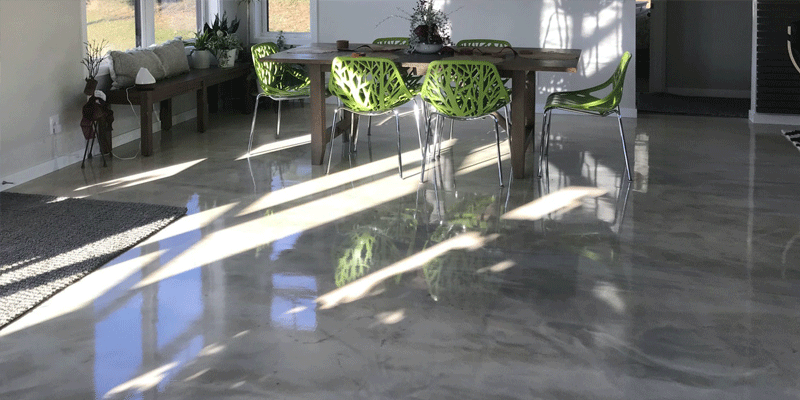Table of Contents
Epoxy Additive? Learn the Facts

If you have an epoxy floor, you may be wondering if you need a non-skid additive. Epoxy floors are already slip-resistant, but a non-skid additive can increase the level of slip resistance. Many people struggle to decide whether or not they need a non-skid additive, so we have compiled the facts to help you make an informed decision.
First, let’s cover the fundamentals of these epoxy coating additives and what they’re designed to do. These additives are typically made from aluminum oxide, which is a very hard mineral. The particles are suspended in the epoxy and provide a rough surface that increases traction. This can be especially beneficial in areas where water or other liquids are present, as it helps to prevent slipping.
Now that we understand what these additives are and what they do, let’s look at some of the pros and cons of using them.
PROS:
1. Increased slip resistance – This is the primary benefit of using a non-skid additive. If you’re concerned about safety, this can be a very important factor.
2. Improved durability – The increased slip resistance can also lead to improved durability, as the floor will be less likely to sustain damage from foot traffic or other impacts.
3. Enhanced aesthetic – In some cases, a non-skid additive can also provide an enhanced aesthetic. This is particularly true for clear epoxy floors, as the additive can create a unique, sparkly effect.
CONS:
1. Increased cost – One of the main drawbacks of using a non-skid additive is that it can increase the cost of your epoxy flooring project. This is due to the fact that the additives are typically more expensive than standard epoxy resins.
2. Difficult to apply – Another potential downside is that these additives can be difficult to apply evenly. If they’re not applied properly, they can create a patchy or uneven finish.
3. Increased cure time – In some cases, non-skid additives can also lengthen the cure time for your epoxy floor. This is because the particles need to settle before the floor can be fully cured.
Is a Non-Skid Epoxy Additive Right For Me?
So, should you choose a non-skid additive for your epoxy floor? Ultimately, the decision comes down to personal preference. If you’re concerned about safety, an additive may be a good option.
However, if you’re willing to trade slip resistance for cost and ease of application, you may want to stick with a standard epoxy resin. Whichever route you choose, make sure to do your research and consult with a professional before beginning your project.
DIY Installation vs. Professional Coatings Company
If you’re considering an epoxy floor coating for your home or business, you’ll need to decide whether to DIY or hire a professional company.
There are benefits and drawbacks to both options, so it’s important to weigh your options carefully before making a decision.
DIY Installation:
1. Cost – The biggest benefit of DIY installation is saving you money. This can be a great option if you’re on a tight budget.
2. Convenience – Another advantage of DIY installation is that it’s more convenient than hiring a professional. You won’t have to schedule an appointment or take time off work, and you can complete the project at your own pace.
3. Satisfaction – For some people, the biggest benefit of DIY installation is the satisfaction of completing the project themselves. If you’re the type of person who enjoys DIY projects, this can be a great option.
Professional Coatings Company:
1. Experience – The biggest advantage of hiring a professional company is that they have the experience and expertise to get the job done right. If you want a high-quality finish, it’s worth paying for professionalism.
2. Efficiency – Another advantage of professional coatings companies is that they’re much more efficient than DIY installation. They’ll have all the necessary equipment and supplies, and they’ll be able to complete the project in a fraction of the time.
3. Guarantee – When you hire a professional company, you’ll also usually get a guarantee on their work. This can give you peace of mind knowing that your investment is protected.
So, which option is right for you? If you’re considering a DIY epoxy floor coating project, be sure to weigh the pros and cons carefully before deciding.
If you decide to hire a professional company, make sure to do your research and choose a reputable and experienced contractor. When looking for a professional installation company, look for:
1. A company with experience: Make sure the company you’re considering has plenty of experience installing epoxy floors.
2. A company with a good reputation: Take some time to read online reviews and check out the company’s BBB rating.
3. A company that offers a warranty: Choose a company that offers a guarantee on their workmanship. This will give you peace of mind knowing that your investment is protected.
When it comes to epoxy flooring, there are many things to consider before making a decision. Use this guide to help you decide whether DIY installation or professional coatings is right for you.
